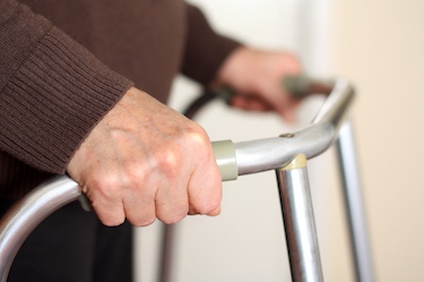Does Your Loved One Have Bedsores? Elder Abuse Might be the Cause
Roughly 1 in 10 nursing home residents will suffer from bedsores at some point, according to the Centers for Disease Control (CDC). While there are indeed cases in which bedsores are unavoidable for the elderly, the disturbing truth is that severe bedsores are most often a sign of elder abuse or neglect.
What are Bedsores?
Bedsores, also referred to as pressure sores, pressure ulcers, or decubitus ulcers, are wounds that typically arise due to “pressure” to soft tissue that partially or entirely cut off blood circulation to the skin. The result is harm and deterioration of the skin, underlying soft tissue and, in many cases, significant infection.
Elderly and immobile populations in nursing homes often develop bedsores on their bottom, back, hips, elbows, knees or heels from sitting in a wheelchair or lying in bed for a prolonged period without repositioning. Medical equipment that presses firmly against the ears or cheeks can also cause pressure sores.
The 4 Stages of Bedsores
Bedsores can range from small and easily treatable to severe, irreversible nerve damage that extends all the way down to the muscle and bone. Severe bedsores frequently lead to a skin or bone infection, which can become life threatening. Medical professionals evaluate bedsores as one of four stages, although some early or advanced bedsores might be termed “unstageable.”
Stage 1
Stage 1 bedsores have visible redness but no broken skin. The affected area will emit warmth to the touch and might feel firmer or softer than the surrounding area. A patient with a Stage 1 bedsore will experience light to moderate discomfort.
Stage 2
At Stage 2, a bedsore has broken the skin and become significantly painful. It will have an appearance similar to that of a blister, rash, or “crater” in the skin. While Stage 2 bedsores are treatable, the skin might be permanently damaged.
Stage 3
Stage 3 bedsores damage the tissue under the skin but have not reached the muscle or bone. At this stage, the sore is usually getting larger and posing a risk of infection.
Stage 4
A Stage 4 bedsore is usually an extremely jarring sight, with damage to the muscle tendons, joint, and bone. Most disturbing is that at Stages 3 and 4, the pain for the patient can actually decrease, due to damage of the corresponding nerve tissue. An elderly patient who has a Stage 3 or 4 bedsore, depending on the sore’s location, might think their Stage 1 or 2 bedsore has gone away, when in fact they are at serious risk of a bone or blood infection.
What Causes Bedsores?
There are many risk factors for bedsores, including:
- Extended pressure from lying or sitting in one place
- Being pulled across sheets or repositioned with force
- Excess moisture caused by poor bladder control, bowel control, or sweat
- Severe immobility from injury
- Protein deficiency
- Low blood pressure
- Poor nutrition
- Site exposure to stool or urine
When Does a Bedsore Constitute Elder Abuse?
Stage 1 and Stage 2 bedsores are almost always preventable. Quality nursing facilities have protocols in place to prevent bedsores—most notably changing an immobile patient’s position or shifting their weight every few hours. They have skin care regimens specifically for the elderly, provide special mattresses and cushions, and actually check for bedsores so that they can begin treating them immediately if they do occur.
Unfortunately, due to the prevalence of inadequate staffing and training in nursing facilities, many residents do not receive the necessary care and attention they need to prevent this painful and dangerous condition. If your loved one has a Stage 3 or Stage 4 bedsore, this is likely a case of elder abuse. The nursing facility is ill-equipped to provide proper care and/or neglectful—regardless, they must be held accountable, not just for your loved one’s health, but also for the health of other patients who might suffer if you don’t bring forth an elder abuse claim.
If your loved one is experiencing bedsores in their nursing home or care facility, contact The Law Offices of Belgum & Fry. We specialize in elder abuse and neglect cases. Together we can ensure your loved one is compensated for their injury and receives proper care moving forward.




